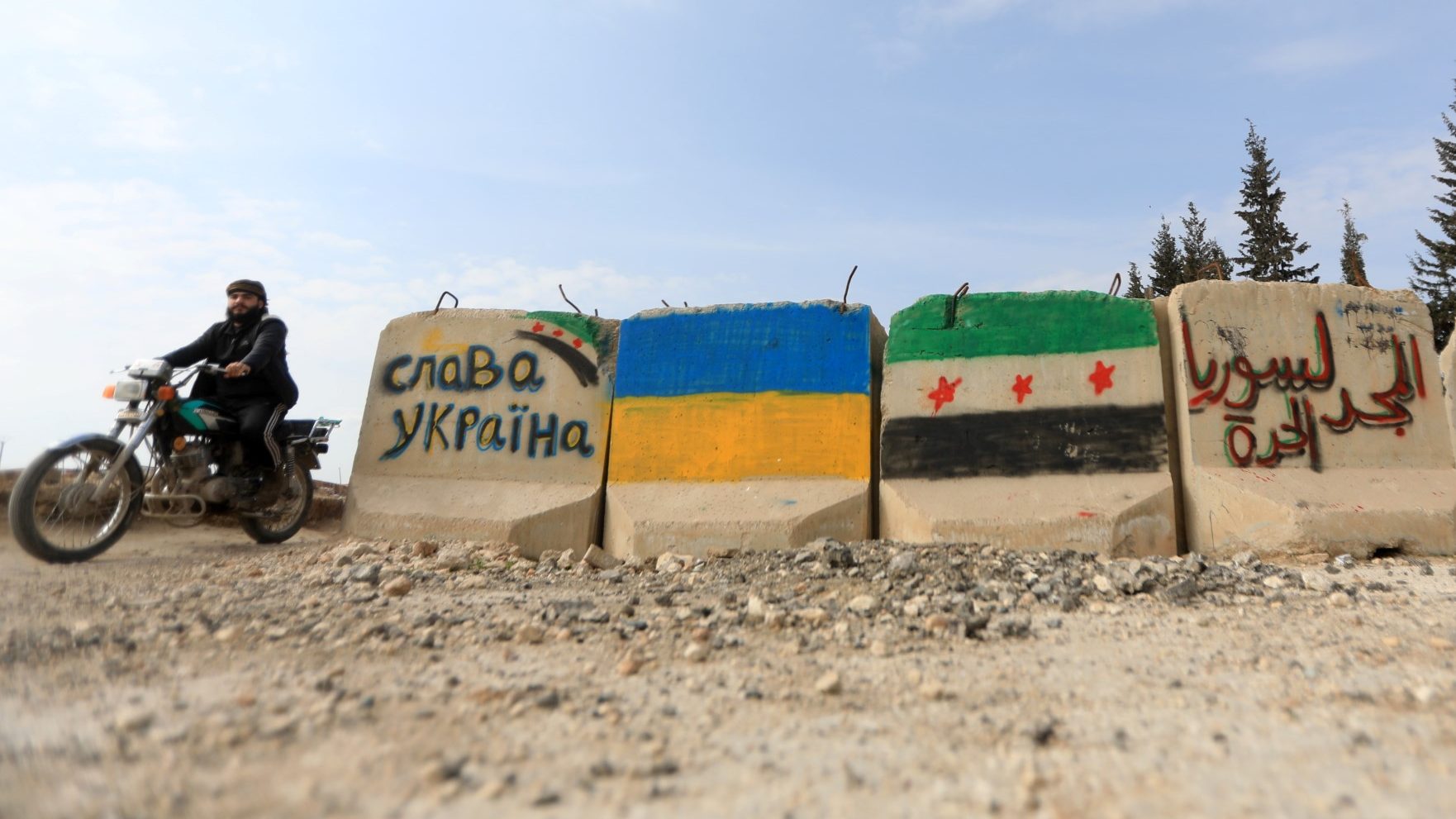Dog tags displaying Syrian telephone numbers have been found on the bodies of Russian mercenaries killed in the current Ukraine war, a Facebook page affiliated with the Ukrainian defense ministry has claimed.
A post on the page, which belongs to the defense ministry’s “Main Intelligence Directorate”, included a photo of the military tags, which showed a website and a phone number with a Syrian country code on one side, and text reading “Please help and contact us” in English, French, and Arabic.
The post said that the tags were found on mercenaries belonging to the Wagner Group – ostensibly a private security firm but closely affiliated to the Russian state – who had previously taken part in the Syrian conflict.
“Wagnerists are already dying on the territory of Ukraine,” the defense ministry’s post said.
It did not say how many tags were found and how many Wagner mercenaries were killed.
The Business Insider news website said that it could not access the website displayed on one of the tags and that calls to the phone number displayed were sent to an automated voice message saying the number was unavailable.
E-mails sent to the address shown returned a reply saying that the address had been “hijacked by Anonymous”.
Read Also: At Russia Request: Shabih Begins Recruiting Members to Fight in Ukraine
Wagner Group mercenaries have taken part in conflicts around the world, including in Syria, Libya, and the Central African Republic and it is believed to be financed by Yevgeny Prigozhin, an oligarch and close ally of President Vladimir Putin.
Russia’s bombing hospital is a Déjà vu
The horrific Russian bombing of a Ukrainian maternity hospital is reminiscent of the bloody war Moscow has waged in Syria since 2015, activists have said.
The strike on the clinic in the besieged city of Mariupol killed three people, including one child, with 17 injured, leading to an outpouring of anger over Russia’s blatant targeting of civilian infrastructure.
Ukrainian President Volodymyr Zelensky called the bombing an “atrocity” and a “war crime” and appealed to NATO to impose a no-fly zone over Ukraine.
“How much longer will the world be an accomplice ignoring terror? Close the sky right now! Stop the killings! You have power but you seem to be losing humanity,” he tweeted.
Russia has targeted other hospitals, homes, and bakeries during its two-week bombing campaign of Ukraine.
It has also besieged cities such as Mariupol, leading to conditions described as “apocalyptic” by the UN.
This targeting of civilians and civilian infrastructure is similar to the military tactics it has deployed in Syria, where it has been backing Bashar Al-Assad’s regime since 2015.
Moscow has flattened dozens of Syrian towns and villages in its blitz of opposition areas, specifically targeting civilian infrastructure like schools and hospitals.
The Russian air force bombed four hospitals in a period of four hours in opposition areas, a New York Times investigation in May 2019 revealed.
Physicians for Human Rights, which tracks attacks on medical workers in Syria, said that they had documented at least 266 such attacks since Russia intervened in Syria in 2015.
They estimate at least 916 medical workers have been killed since 2011 when the Assad regime brutally put down pro-democracy protests leading to a widespread uprising.
Raed Al-Saleh, head of the White Helmets, advised Ukrainians not to reveal the coordinates of hospitals to the UN nor involve Russia in humanitarian efforts as such facilities will be likely targeted by Moscow in its bombing campaign.
“Do not give GPS locations of medical facilities to the United Nations, which may claim it needs the information to keep them safe,” he wrote in The Washington Post.
“The Russians will use that information to target them. Never let Moscow have any say or control over how humanitarian aid is distributed, even when it’s a U.N. program. The Kremlin will use that power to starve out civilian populations, as it is doing in Syria now.”
The Syrian Observer has not verified the content of this story. Responsibility for the information and views set out in this article lies entirely with the author.


